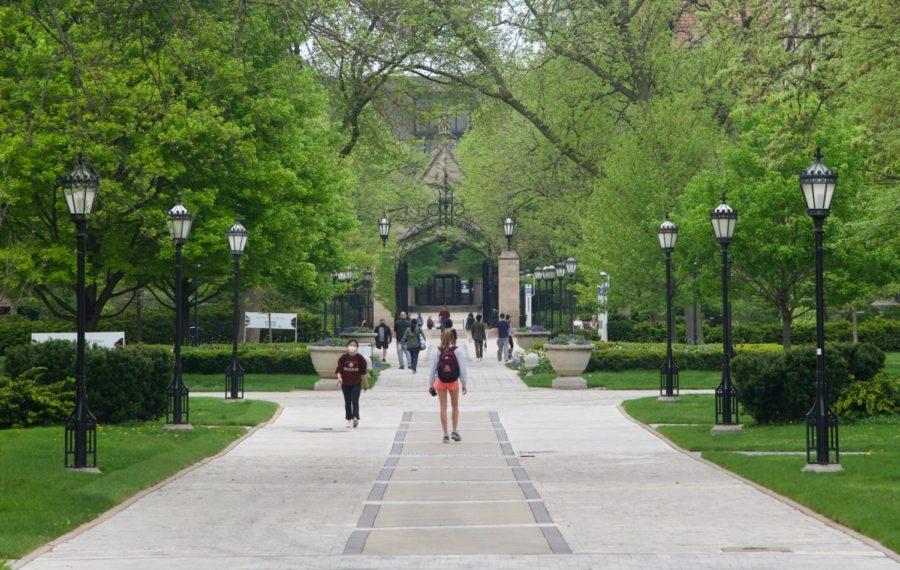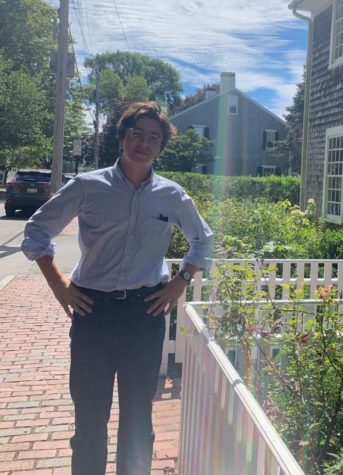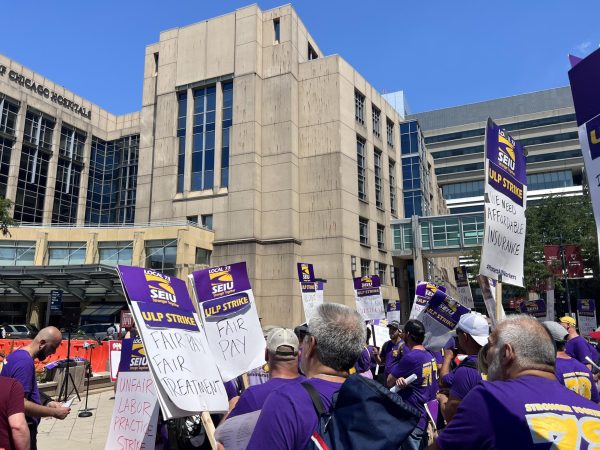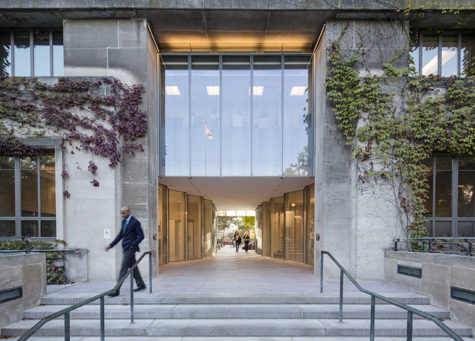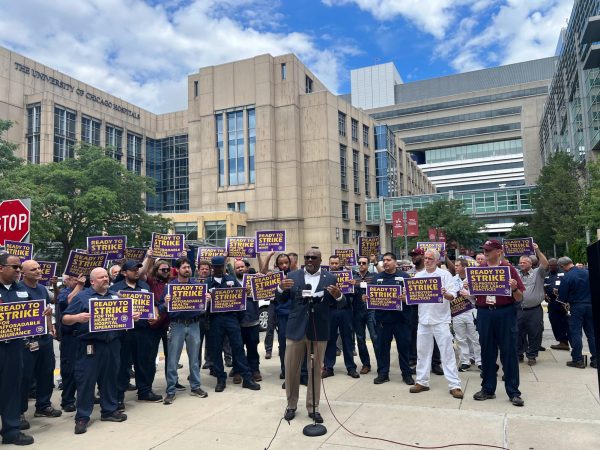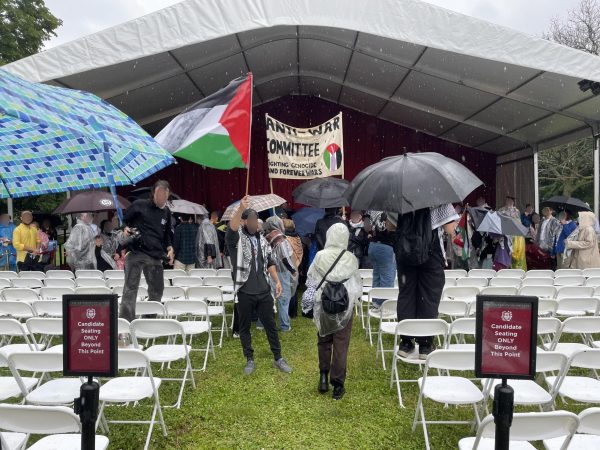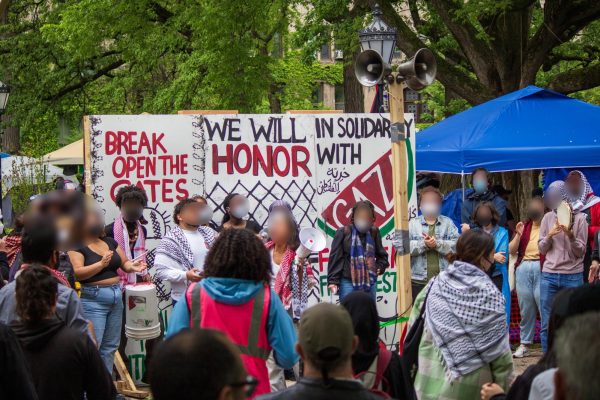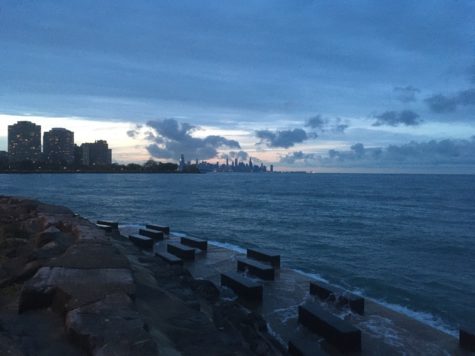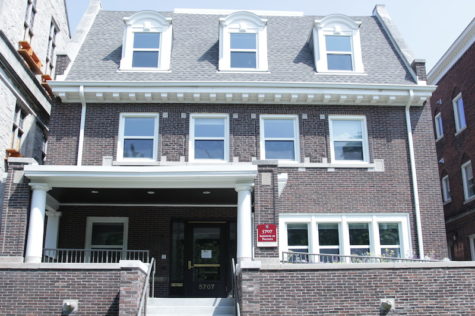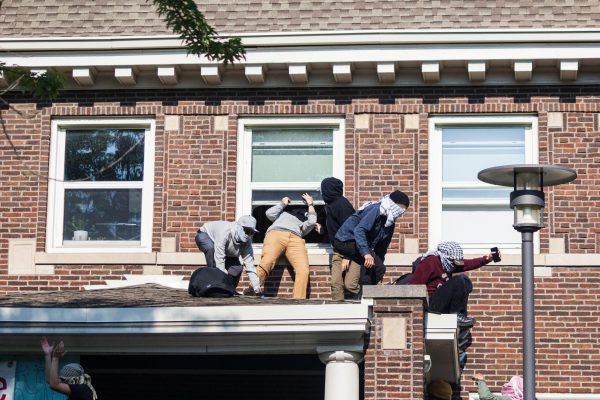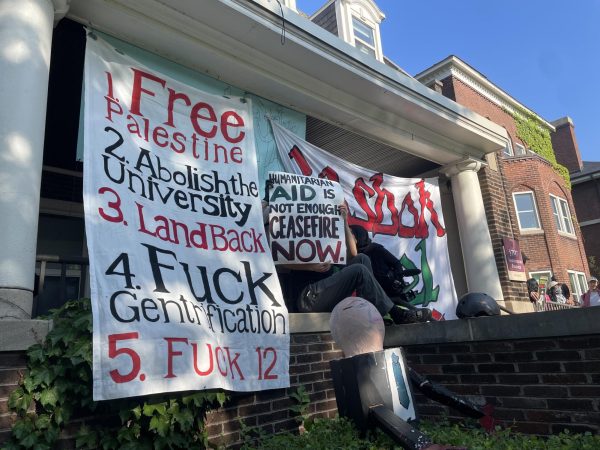“Whose Work? Our Work!”: At Rally, GSU Begins New Campaign for Formal Recognition
With their new partner United Electrical, GSU renewed their push for recognition.
Students walking in the Quad.
October 4, 2022
At a rally on the quad on Tuesday, September 27, Graduate Students United (GSU) announced the beginning of a new “signing card” campaign that puts graduate student workers on track to win representation in a legally recognized union.
Hundreds of graduate student workers from across the University gathered on the quad alongside representatives from Faculty Forward, the University’s union of non-tenure track professors, and the United Electrical, Radio, and Machine Workers of America (UE), the national union with whom GSU recently voted to affiliate in August. UE has led successful graduate worker unionization efforts at the Massachusetts Institute of Technology.
When graduate student workers sign a union authorization card, they consent to union representation under UE, explained GSU spokesperson Laura Colaneri. Once 30 percent of workers sign cards, the National Labor Relations Board (NLRB) will organize a plebiscite to confirm the workers’ decision to unionize. After an affirmative vote, the case would advance to the NLRB for formal approval.
“This is what democracy looks like!” attendees at the rally shouted, gathering around organizers in yellow vests that issued authorization cards or directed attendees to a digital authorization page.
Organizers announced that they hope to sign up 900 student workers in the campaign’s first week.
Graduate student workers at the University voted to unionize in 2017 as an affiliate of the American Federation of Teachers (AFT), Illinois Federation of Teachers (IFT), and the American Association of University Professors (AAUP). However, GSU withdrew their case from NLRB consideration when they feared that a new, Trump-appointed majority on the Board would use GSU’s case to overturn a yearslong precedent allowing graduate students to unionize.
Tuesday’s rally marked the beginning of a new campaign for unionization. At the rally, signs advocated a new set of bargaining demands that GSU has established after a summer of community meetings and online surveys of graduate students. These demands comprehensive dental, vision, and healthcare for graduate student workers, as well as additional legal support for international graduate student workers.
Graduate chemist Valay Agarawal said that he wanted the University to support international graduate students “in tangible ways, not just in emails.” At the rally, he said that visas and travel expenses can prohibit them from working at the University of Chicago.
Representatives also advocated for a higher stipend to cope with the increasing cost of living, another plank of this year’s platform.
“We’re finding that our stipend is not keeping up with inflation,” Colaneri told The Maroon. “Tying a living wage to the cost of living and rising inflation has become a much bigger priority for people.”
Based on publicly available information, the minimum graduate student stipend appears to be $33,000 a year, a number that was repeated by organizers at the rally. “We’re realizing we don’t get to see the budget on this,” Colaneri said. “Decisions are being made for us but without us.”
Maya Mallaby-Kay, a graduate student at the rally, said she joined GSU when she received a medical bill from the University of Chicago for a procedure that insurance at the University of Michigan—where she’d been a graduate student worker previously—had covered. The University of Michigan has a long-standing union for graduate students.
“For me, that was really eye opening. Like, ‘Oh, there are very concrete differences you can have when you have a union that’s legally recognized,’” Mallaby-Kay said.
Mallaby-Kay worked on the platform committee this summer, which developed GSU’s updated demands. “We’re excited about this platform because a lot of work went into trying to develop things that are sort of wanted by our whole union and for us, the democracy and representing all graduate’s voices is incredibly important,” she said.
While GSU successfully bargained for the abolition of the University’s Student Services fee in January, the relationship between GSU and the University remains strained, according to both Mallaby-Kay and Colaneri.
“This year, we are very hopeful that we can have a more productive relationship,” Colaneri said.
Michael Stablein, the rally’s emcee and a graduate student worker in the history department, riffed on the University of Chicago administration’s vocal commitment to free speech. “Speech is free at the University of Chicago,” Stablein called into the microphone. “Apparently, so is graduate labor.”
Stablein encouraged the crowd to let Levi Hall, the administration building, hear what graduate student’s free speech sounds like. Cheers, jeers, and shouts poured out of the crowd—some less than courteous.
Graduate student workers can sign their union authorization cards and learn more about GSU’s new 2022 plans at https://uchicagogsu.org/


